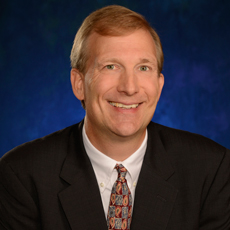
My first thought was one of concern: What had gone so wrong that one of the most esteemed long-term care providers in New York had to change its name? If it ain’t broke, don’t fix it, right? What was broken?
As it turns out, nothing.
Evolution — not the U.S. legal or regulatory systems — is the compelling reason behind a rebranding for the Hebrew Home at Riverdale. There has been no slide — dramatic or gentle — that has forced the venerable provider on the Hudson River to become RiverSpring Health.
On the contrary, says CEO Daniel A. Reingold. RiverSpring not too long ago was just an 850-bed nursing home; now it serves 12,000 people throughout the New York City area. Day care, managed care, certified home health, special housing services … the additions have been bountiful, and successful.
“We started as a little home for the aged in 1917 [in Harlem], and then the [Jewish] community moved and we bought more property in Riverdale to follow them,” Reingold explained.
“In some ways, the same thing is happening now, in a virtual concept,” he added. The leader of a half-billion dollar enterprise was relaxed in a pullover shirt and light jacket, as he opened up about his vision, which has been nearly 10 years in the making. Other providers might not have the scale or wherewithal to duplicate the effort, but certain elements of it undoubtedly will be copied.
All healthcare may be local, but adult children might be spread around the country. When they ask local providers for strong, reputable providers in New York, the goal is that the Hebrew Home at Riverdale, er, RiverSpring Health will roll off their lips.
Actually, both names will continue to exist. The organization’s nursing home will remain “The Hebrew Home at Riverdale.” Fifteen other areas of care, including RiverSpring Post-Acute Services and RiverSpring at Home, will carry the RiverSpring brand.
“Tomorrow can be better than today” is the sub-theme to the rebranding effort. Among other things, it is unabashedly an attempt to “be all things to all people,” Reingold acknowledged.
“Really, it’s about changing the way service is delivered to baby boomers,” he said.
The changes are in some ways similar to rebranding efforts by providers — Jewish and otherwise — in numerous other U.S. markets, including Boston, Dallas, Atlantic City and Michigan. “Ninety percent of the people we serve are not Hebrew, we’re not just a nursing home and we’re not just in Riverdale any more,” he explained. “We’re getting the geography out. We’re getting ‘aged’ out.”
He said that studying service expansions by others in LeadingAge led him to ask, “Why can’t they all be in in one place?”
That’s not to say that this is a play for quantity over quality. The managed care element of RiverSpring began in September 2010 with special permission and a goal of 1,000 members. It has since soared to 10,000 participants. A $100 million operating budget has boomed to $500 million.
But the goal is not necessarily to simply keep adding clients at every turn, Reingold told me.
“It’s not about whether we went from 12,000 to 15,000 but getting the right services in place and working as a team,” he said. “The customer experience in post-acute services will become totally different than it is now.”
An indicator of success, Reingold said, will be whether the use of private geriatrician care management rises, and whether his team can tear down various “silos” of care. Part of the effort will include developing the first continuing care retirement community in New York — provided local authorities first approve it.
“Even then, a CCRC does not fill all the gaps,” Reingold added. One part of the quest is to continue to keep RIverSpring services suitable for middle-income people. Ninety percent of the individuals served by RiverSpring are on Medicaid; the rest are split just about evenly between Medicare and private pay.
Providers flocked to RiverSpring’s booth at the LeadingAge national conference in Nashville last week to learn more. Although the name change was approved in June, the LeadingAge meeting was RiverSpring’s “coming out.” Organization leaders planned to conduct extensive education efforts to inform staff members this week. A newly created crop of “care counselors,” whose job will be to guide residents to all aspects of RiverSpring offerings, will first indoctrinate staff members about the “whole culture shift,” Reingold said. The branding change will be boosted by an orchestrated media and public relations blitz in January.
“I didn’t think we had a choice,” Reingold said of the rebranding and accompanying culture shift efforts. “It was more of a question of how do we do it? ”
Putting the wind in RiverSpring’s sails is the fact that it is leading with innovative efforts, not just reacting belatedly to market conditions. A big target is RiverSpring’s planned 2017 centennial celebration.
Potential clients and business partners — not to mention the country’s provider community at large — will be closely watching.
James M. Berklan is McKnight’s Editor. Follow him @LTCEditorsDesk.




